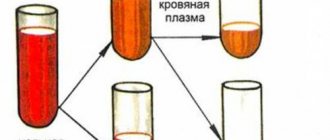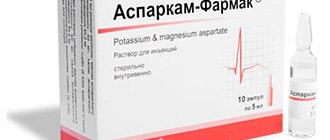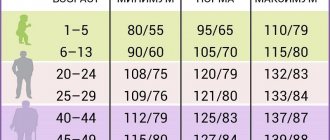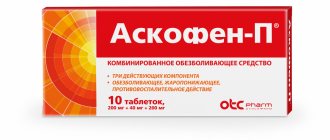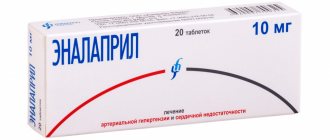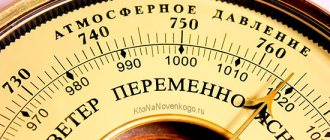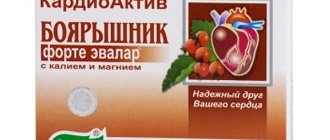Medicines for high blood pressure are in widespread demand not only in our country. Today, hypertension (hypertension) is considered a disease of youth, as cases of the disease are increasingly being recorded among young people and adolescents.
- Andipal for high blood pressure
- Corvalol: lowers blood pressure?
- Valerian and blood pressure
- Shilajit and blood pressure
- Eufillin and blood pressure
- Glycine lowers blood pressure
- Anaprilin for blood pressure
- Mydocalm: does it increase blood pressure?
- No-spa and pressure
- Concor from pressure
- Enalapril: for blood pressure?
- Papazol and blood pressure
- Enap and pressure
- Nitroglycerin and blood pressure
- Captopril for blood pressure
- Novopassit and pressure
- Papaverine and blood pressure
- Iodine and blood pressure
- Afobazole: effect on blood pressure
- Honeysuckle and pressure
Drug treatment for high blood pressure may include the following medications:
- β-adrenolytics (normalize cardiac activity and reduce peripheral vascular resistance; the most popular are timolol and anaprilin)
- diuretics (they remove excess fluid from the body; veroshpiron and furosemide are effective and widespread)
- ACE inhibitors (affect the rhinin-angiotensin system; mainly prescribed ramipril or captopril)
- calcium antagonists (in pharmacies you can find cinnarizine, felodipine, verapamil)
- alpha blockers (block impulses that lead to vasoconstriction; doxazoline is the most popular)
- angiotensin receptor blockers (inhibit the active action of angiotensin; you can buy valsartan, irbesartan, diovan, cozaar in pharmacies)
- medications to dilate blood vessels, such as apressin or dimecarbine
Andipal for high blood pressure
Andipal is a drug from a number of vasodilating antispasmodics. It contains substances such as analgin, papaverine, dibazole and phenobarbital. Dibazole just affects blood pressure, reducing them. Papaverine is an antispasmodic that will relax smooth muscles. Phenobarbital has a calming effect, which also reduces blood pressure. But pressure decreases only if it is caused by stress or vascular spasms. If you are diagnosed with essential hypertension, Andipal will not be effective.
The medicine in question is not intended to stabilize blood pressure. If you have headaches without a doctor’s prescription, it is better not to take this drug, because low blood pressure can also be the cause of headaches.
During pregnancy
There are no particular contraindications for nasal administration during pregnancy, which runs without complications.
The main activity of the drug is to reduce the contraction, which is not faster, but with a smooth transition to normal. For expectant mothers, it is important that the medicine is not only effective, but also safe for the child. In addition, it works selectively, directly on the muscles of the uterus and other organs.
Often the drug is prescribed before birth to prepare for the normal arrival of the baby and to relieve the mother by optimizing uterine tension.
Despite the safety of the medicine for the expectant mother and child, taking it even for medical reasons (colic, headache) should only occur after consultation with a visiting doctor. The use of NO-SHPA in the first trimester of pregnancy is extremely undesirable as it can reduce the tension of the uterus and cause miscarriage.
If a pregnant woman has low blood pressure, it is recommended to take a horizontal position from the injection to avoid rupees.
Corvalol: lowers blood pressure?
The composition of Corvalol includes ethyl ester of α-bromoisovaleric acid, phenobarbital and mint oil, which gives the drug a specific strong odor. Corvalol relieves spasms, stabilizes the human nervous system, and greatly dilates blood vessels. After taking this drug, many note that it was easier for them to fall asleep.
This medicine can be taken if high blood pressure is caused by stress, vascular spasms, or lack of sleep. Corvalol is drunk before meals (add 30 drops of medicine to 50 ml of water), 1-3 doses per day. In some cases, doctors advise increasing the dosage to forty drops. Corvalol is also sold in tablets, which are taken a couple of times a day in the amount of one or two tablets.
Long courses of Corvalol to lower blood pressure are prohibited. The drug should be alternated with another drug of similar action or breaks between courses of administration.
special instructions
No-Shpa contains lactose, so patients with impaired absorption of glucose and galactose should take the tablets with caution and only after the doctor’s approval.
If the solution is administered intravenously, the patient should lie down for several minutes at rest. If you have high blood pressure, use is allowed only in consultation with your doctor.
The injection solution contains sodium metabisulfite, which can cause an allergic reaction. In rare cases (especially in the presence of bronchial asthma, chronic allergies), bronchospasm and the onset of individual signs of anaphylactic shock are possible.
Valerian and blood pressure
Valerian tincture contains isovaleric acid, borneol ester, alkaloids and valeric acid. This remedy helps to calm down sleep disorders, stress, and also helps with gastrointestinal spasms. Valerian tincture reduces blood pressure caused by the reasons just listed, but the medicine does not have a direct hypotensive effect. Mainly prescribed as part of combination therapy. Take valerian after meals, 25 drops (maximum 4 times a day). Among the side effects that appear with an overdose are drowsiness, causeless fatigue and slight dizziness.
Side effects from taking No-Shpa tablets
In most cases, no side effects are observed. But with long-term use, as well as due to the individual characteristics of the body and human condition, the following consequences may appear:
- increased heart rate;
- sleep disorders;
- headaches;
- dizziness;
- decreased blood pressure;
- nausea;
- bowel dysfunction (constipation);
- allergic reactions.
If an injection is administered, a local reaction (redness, foreign sensations) may additionally be observed.
Shilajit and blood pressure
Shilajit is a natural remedy that contains many useful micro- and macroelements, as well as organic substances. Scientists still do not answer exactly the question of how mumiyo affects blood pressure. It may contain various ingredients depending on the location of the deposits and some features of the area.
Shilajit is known to relieve inflammation, help remove toxins from the body, strengthen the defenses, etc. Shilajit is supposed to lower blood pressure. It contains chromium, which affects blood pressure. But one tablet of the product is unlikely to help. A minimum twenty-day course is required. Gradually, the body's metabolic processes stabilize, and along with them, the pressure decreases to some extent.
Contraindications for use
Contraindications to the use of the drug are the following diseases and features:
- low cardiac output;
- severe kidney and liver diseases (failure);
- hypersensitivity to the active substance (drotaverine) or to other components in the tablet;
- lactase deficiency (metabolism disorders of galactose and glucose).
During pregnancy (any period), the drug is taken with caution; similar recommendations are for children and people with low blood pressure. It is recommended to consult your doctor first.
Eufillin and blood pressure
Eufillin is a drug from the class of antispasmodics that expands the lumen of blood vessels, lowers blood pressure, has a positive effect on blood circulation in the body, and also helps against spasms of smooth muscles. Eufillin is mainly prescribed for pulmonary edema, asthma, cerebral edema, angina pectoris, and edema, which is a manifestation of hypertension. The drug is not prescribed to patients prone to hypotension. If pressure increases, targeted treatment with aminophylline cannot be done, since due to some components the pressure stabilizes after a slight decrease or does not decrease at all.
Anaprilin for blood pressure
Anaprilin is an adenoblocker. It lowers blood pressure and heart rate decreases. There is a possibility of increased uterine contractions and increased gastrointestinal secretion. This drug is prescribed to patients with cardiac arrhythmias, including paroxysmal tachycardia, patients with myocardial infarction, angina pectoris, and hypertrophic cardiomyopathy. It should be taken a maximum of 4 times a day, 0.025 g, twenty minutes before meals. If the doctor has prescribed an injection, he must also indicate the dosage.
Anaprilin can lower blood pressure, regardless of whether it was previously high or low. The pressure may drop very quickly if the medication was administered quickly intravenously, or during long courses.
Mydocalm: does it increase blood pressure?
Mydocalm suppresses muscle spasms that are caused by pathologies of the central nervous system. It reduces muscle tone, inhibits the passage of nerve impulses, and inhibits the occurrence of seizures. The use of the drug in question is relevant for organic lesions of the nervous system, which are characterized by increased muscle tone, for epilepsy, encephalitis and multiple sclerosis. Mydocalm does not increase blood pressure. Due to its antispasmodic effect, rapid intravenous administration may lower blood pressure. For long courses, systematic monitoring of pressure by measurement is important.
Reasons for the increase
The normal intracranial pressure in adults is 7-15 mmHg. The main causes of intracranial hypertension:
- an increase in the volume of normal structural components due to edema,
- the appearance of additional space-occupying formations: cysts, tumors, abscesses,
- extra- and intracranial diseases: sinus thrombophlebitis, subdural and epidural hematomas (spontaneous or after injury),
- common inflammatory process: meningitis, meningoencephalitis, encephalitis,
- exo- and endogenous intoxications.
No-spa and pressure
No-spa has an analogue, this is Drotaverine. The drug acts as an antispasmodic, affecting the smooth muscles of the gastrointestinal tract, blood vessels and genitourinary tract. Indications for use:
- colic or annoying hiccups
- spastic constipation / colitis
- pylorospasm
- spasms due to cystitis, kidney stones, pyelitis
- spasms of the bile ducts and gallbladder
No-shpu is sometimes used by hypertensive patients to relieve headaches. The effect on blood pressure is due to the antispasmodic effect. Low blood pressure is most often a contraindication to taking No-shpa. For the same reason, drug overdose should be avoided. You can take 1-2 tablets no more than 3 times a day, only after meals. Also sometimes the drug is administered by injection into the muscle.
Features of application
The drug can be used in combination with other drugs, but it is recommended to first consult with your doctor. To get rid of migraines before taking the drug, it is recommended to measure your blood pressure, since this condition is possible with both high and low pressure.
For hypertension
No-aspa as an antispasmodic against the background of high blood pressure is permissible if necessary:
- relieves spasms in the intestines caused by poisoning, uncontrolled medication, but not associated with organ pathology;
- Reducing pain in the lower abdomen and lower back due to cystitis;
- Soothes spasms of the bronchi and lungs during severe coughing.
If the fever is accompanied by cramps, the medicine helps relieve them and is used in combination with antipyretics.
The tablets will have a pronounced antispasmodic effect for spasms of various locations (in the liver, kidneys, intestines) caused by the abuse of alcoholic beverages, spicy and fatty foods. They quickly relieve pain, but do not eliminate the cause of its occurrence.
For hypotension
No-SHPA for low blood pressure is used for the same purposes as for high blood pressure, but must be more careful with respect to the dosage.
If it is exceeded, the drug in people with reduced vascular tension can cause:
- dizziness;
- increased fatigue, drowsiness;
- and poor concentration.
Excessive amounts of the drug cause fainting and confusion.
These side effects most often occur in patients whose blood pressure is below 100/60. This is due to the deterioration of oxygen delivery to the bleeding brain.
Concor from pressure
The drug belongs to beta-blockers; main active ingredient: bisoprolol. The drug reduces blood pressure, relieves heart rhythm disturbances and stabilizes the functioning of the organ. Concor reduces minute blood volume, carries out sympathetic activation of distal vessels, etc.
Already with a 2-day course, Concor has a positive effect on stabilizing blood pressure. Stable numbers on the tonometer appear after 1-2 months of treatment with this medicine. Concor is available in tablets. It cannot be crushed; the tablet is swallowed with food or immediately after eating. The dosage may vary in each case. Initially, the patient is generally given 1 tablet per day once. In some cases it is 2 tablets instead of one. You can take no more than four tablets of the drug in 24 hours. Don’t expect Concor to instantly lower your blood pressure; this requires long-term, targeted treatment.
Enalapril: for blood pressure?
Enalapril is a drug that is used to reduce and prevent further increases in blood pressure. It affects both systolic and diastolic parameters, reduces the load on the heart, and dilates the arteries. Enapril gently reduces blood pressure without having a negative effect on blood circulation in the human brain. It also increases blood flow to the heart and kidney areas. The drug may be prescribed by a doctor to prevent heart failure. The medicine has a slight diuretic effect.
Enapril, taken orally, helps with blood pressure within an hour. The maximum effect occurs in the fifth hour from taking the drug, the duration of the effect is approximately 24 hours. In severe cases, the pressure decreases only after a 2-3 week course of treatment.
Enapril can be taken in the morning, afternoon or evening (5 mg once a day). The doctor may advise increasing the dose after 1-2 weeks if the patient is in serious condition. The maximum daily total dosage is 40 mg, otherwise blood pressure may drop sharply, which threatens collapse and acute disruption of blood circulation in the brain.
Ways to reduce pressure in intracranial hypertension
Since such a pathology is most often a symptom of a disease, it is necessary to eliminate the cause of its occurrence.
To ensure the flow of cerebrospinal fluid, in some cases, surgery is performed to remove a tumor, abscess or hematoma. If the cause is an infectious inflammation of the meninges, then massive antibiotic therapy is carried out. It is possible to introduce them into the subarachnoid space.
To eliminate symptoms, methods are used that include non-drug and drug therapy. First, you need to raise the victim's head and limit fluid intake.
Diuretics are used among medications to remove excess fluid from tissues. Acetazolamide and Furosemide have this effect. The therapy is selected by a neurologist. Diacarb effectively reduces the production of cerebrospinal fluid.
To improve microcirculation and blood supply to tissues, neuroprotectors and nootropics are used. In severe cases, hormonal therapy is required under monitoring of vital signs.
Carrying out a spinal puncture with mechanical extraction of cerebrospinal fluid has a hypotensive property. Surgery is often required. Shunt surgery is planned to artificially drain fluid from the brain.
Papazol and blood pressure
Papazole belongs to the antispasmodics that lower blood pressure. It contains dibazole and papaverine, which have the ability to reduce blood pressure. Doctors prescribe Papazol mainly for the treatment of arterial hypertension, which is caused by spasm of peripheral vessels and the vascular system in the brain. It is also effective for smooth muscle spasms, facial paralysis, and poliomyelitis.
Papazol should be given to the patient orally, 2-3 times a day in the amount of two tablets. If you combine the medicine with diuretics, antispasmodics or sedatives, the decrease in pressure will be more significant than with monotherapy. Contraindications to the use of the drug are epilepsy, bearing a child and breastfeeding a newborn.
Admission rules
The standing standard for tablets or capsules is 240 mg per day, the maximum single dose is within 80 mg, and the entire volume should be divided evenly over 2-3 times.
When administered intramuscularly, the optimal daily dose is 40-240 mg in 3 injections.
When taking a medicine without consent, it is allowed to use 3 to 6 tablets per day, but not longer than for 2 days. If there is no improvement in your health, go to the clinic to arrange examination and diagnosis.
Enap and pressure
Enap is a drug that lowers blood pressure. It contains enalapril and hydrochlorothiazide. The first component relieves spasms and dilates blood vessels, and the second has a diuretic effect and reduces blood volume. Enap is given to the patient every day at the same time, preferably in the morning. You cannot take the medicine on an empty stomach. Chewing and crushing tablets is also not recommended. You can take 1 tablet per day. If you exceed the dose, there is a risk of a very strong drop in blood pressure.
Nitroglycerin and blood pressure
Nitroglycerin relaxes smooth muscles, lowers blood pressure for a short time and improves blood supply to the heart muscle. After administration, the patient’s breathing becomes deeper and the heart rate increases. Nitroglycerin is effective for angina attacks, asthmatic conditions, etc. The medicine lowers blood pressure, so during treatment they need monitoring with a tonometer.
After the first use of the drug and in case of overdose, a sharp drop in blood pressure may be observed, and even orthostatic hypotension may be observed in such cases. You can take no more than 6 tablets or sixteen drops of this drug per day.
Captopril for blood pressure
Captopril reduces peripheral vascular resistance and lowers blood pressure. The doctor may prescribe captopril for chronic heart failure. For symptoms of arterial hypertension, the drug should be taken 2 times a day at a dose of 12.5 mg at the beginning of treatment. If the tonometer readings do not stabilize within 1-2 weeks, the dose should be increased, but not independently, but as prescribed by a doctor.
The drug is taken up to three times a day at a dose of 25 mg. You can take no more than 150 mg of the drug per day. Consumption is recommended 60 minutes before meals. After taking the first dose, a sharp drop in blood pressure is likely. But then it returns to normal. For elderly patients, individual dosage selection is required.
Novopassit and pressure
Novopassit is a sedative that contains guaifenesin and herbal components such as valerian, hawthorn, etc. The drug is used for increased irritability, anxiety and restlessness, phobias, mental overload, stress, and sleep disorders. Novopassit relaxes smooth muscles, but its effect on blood pressure has not been proven. You need to take the drug 3 times a day, one teaspoon. It is given to the patient after meals or with drinks.
Papaverine and blood pressure
Papaverine belongs to the antispasmodics and contains papazole. It dilates blood vessels, eliminates spasms and reduces smooth muscle tone. The sedative effect of the drug occurs only when large doses are taken. Papaverine is effective for spasms of the vascular system of the brain, digestive organs, and urinary system. Can be used as an additional tool in preparation for operations.
Papaverine reduces blood pressure if this condition is caused by vascular spasm. Therefore, it is prescribed for some forms of hypertension. It is given to the patient after meals 4 times a day orally, 0.02-0.05 grams. Sometimes it is recommended to administer 1-2 ml of a 2% solution under the skin. To enhance the effect, Papaverine can be combined with other medications.
Iodine and blood pressure
Iodine is a drug that is prescribed to eliminate the lack of this element in the body of a child or adult. Such conditions occur during pregnancy, thyroid disease, breastfeeding, and, in some cases, when living in environmentally unfavorable areas. Excess iodine is no less dangerous than its deficiency, therefore taking the drug on your own is unacceptable! We need 150-200 mcg of iodine per day, which the body receives with food.
Increased blood pressure due to thyroid disorders is likely. Iodine reduces blood pressure to some extent. If the cause of the increase in blood pressure is not a malfunction of the thyroid gland, then iodine will not have any effect on blood pressure. Therefore, we advise you to go to the doctor and undergo the appropriate examinations to know whether iodine will help lower blood pressure in your case.
Measurement methods
It is impossible to independently measure intracranial pressure at home.
We need the help of competent doctors and medical equipment. There are two main measurement methods - invasive and non-invasive. The first non-invasive method is fundus ophthalmoscopy. The doctor will perform an examination and estimate the eye pressure based on the diameter of the optic nerve head. With intracranial hypertension, the disc will be swollen, enlarged, with unclear contours.
Transcranial Doppler ultrasound shows pulsation and blood flow in the cerebral arteries. An increase in the index above accepted values means an increase in pressure in the cranial cavity.
scan of the brain
detect possible injuries and damage, swelling, hematomas and tissue displacement. In children, you can perform an ultrasound through an open fontanel and see the structures of the brain.
An invasive but reliable method is a spinal puncture. The procedure is performed strictly according to indications. The state of the cerebrospinal fluid is assessed: pressure and physical characteristics. Based on the rate of its flow, one can guess the nature of the liquor pressure.
Afobazole: effect on blood pressure
Afobazole has a pronounced anti-anxiety and slight stimulating effect. The drug helps with sleep disorders, anxiety and fears. The drug has no toxic effect. The properties of the drug are not aimed at changing blood pressure, so taking Afobazole specifically to lower or increase blood pressure is not advisable. But, if the reason for the increase in blood pressure lies in stress in a particular case, then the medicine in question can help.
Honeysuckle and pressure
Honeysuckle is a plant that has aromatic berries that are famous for their medicinal properties. These berries are useful for high blood pressure (hypertension). Honeysuckle berries are effective for anemia, pathologies of the cardiovascular system, and atherosclerosis.
Honeysuckle lowers blood pressure and eliminates headaches if they were caused by elevated blood pressure. After a short heat treatment, the berries do not lose their properties. Compotes are prepared from them or consumed raw. The simplest and most common drink is the following: 3 tbsp. spoons of berries are crushed and poured into 200 ml of boiling water, left for 20 minutes and drunk three times a day before meals.
Most drugs that lower blood pressure also have antispasmodic, diuretic, or many other effects. Self-administered use of medications is not recommended. It's better to make an appointment with a doctor. After all, eliminating a symptom does not relieve you of serious diseases that may underlie hypertension (high blood pressure).
Contraindications
Despite the relative safety of use, and the fact that nasal spray helps relieve spasms, there are some contraindications to its use. The main ones are intolerance to drug components and low blood pressure.
It is also not recommended to take the drug in:
- atherosclerosis;
- Acute failure of the cardiovascular system;
- Glaucoma, high intraocular pressure;
- prostate prostate;
- Severe chronic or acute kidney and liver diseases.
In addition, it is not recommended to take pills to reduce pain in neighbors by the kidneys before the ambulance arrives, because due to their effective work, the clinical picture of the disease can distort the disease, which will interfere with the correct diagnosis. Refusal
No-SHPA is not recommended by many doctors for children under 6 years of age, and is also contraindicated for women while breastfeeding.
